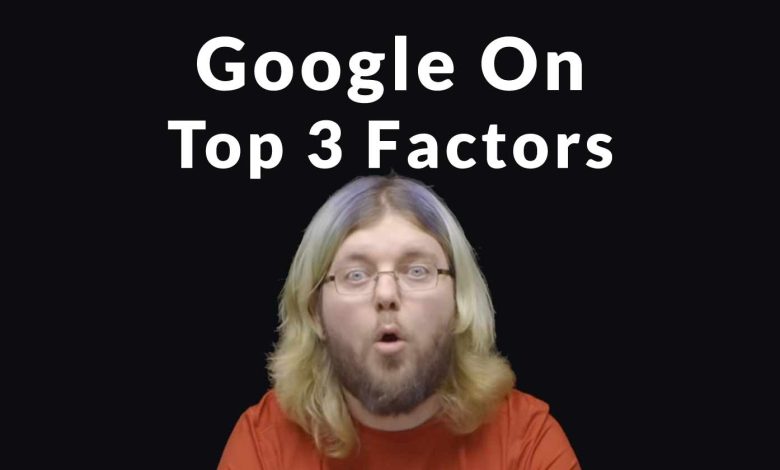
Google’s first episode of SEO Myth Busters has recently premiered, featuring Google Webmaster Trends Analyst Martin Splitt addressing the top 3 SEO factors to focus on. Near the end of the show, Martin responded to a surprising question posed by the guest.
How Google Selects Relevant Pages
The discussion began with a question about relevance: “How do you know which… results are more relevant to a given user?”
Martin’s response: "We have over 200 signals to do so. We look at things like the title, the meta description, the actual content you’ve got on your page, images, links… All sorts of things. It’s a very complicated question to answer what ranks you best, but yeah… we look at a bunch of signals."
SEO Factor #1 – Content
The guest then asked what the top 3 SEO factors to consider are. Martin’s response emphasized the importance of content: "You have to have really good content. And that means content that serves a purpose for the user. It’s something that users need and/or want. If your content says where you are, what you do, how you help me with what I’m trying to accomplish, that’s fantastic."
This advice highlights that content should fulfill a specific purpose to rank well. If someone searches for a King Size Widget, Google often ranks product pages that provide exact matches.
Make Your Content Relevant
Martin also discussed the importance of understanding the phrases users use when searching and incorporating them into content. He highlighted the significance of speaking in the language users employ.
A common error on B2B sites is using jargon that doesn’t align with how a broader audience searches for products.
SEO Factor #2 – Meta Data
The second topic focused on technical factors, particularly meta data. Martin explained: "Make sure you have meta tags that describe your content, like a meta description, to give a little snippet in the search results. Ensure page titles are specific to the page you’re serving."
Effective titles and meta descriptions require understanding, and automation should not lead to generic content.
Is a Meta Description a Ranking Factor?
It’s traditionally understood that a meta description isn’t a ranking factor, yet Martin emphasizes it among top SEO factors. This raised questions about whether Google has adjusted its stance.
SEO Factor #3 – Performance
Martin identified performance as a crucial SEO factor, a point supported by Google’s John Mueller noting that speed doesn’t override other factors. Sites with poor performance might still rank if omitting them would harm user experience.
Martin clarified: "Performance helps not only in discovering content faster but also enhances user experience."
Google Myth Busters Answers a Shocking Question
Just as Martin was concluding, the guest, a web developer, posed a poignant question: "Why is it so important for companies to rank in the top results?"
Martin explained: "To ensure people use what you build on the internet, they must know about it. Being among the first results is crucial, as people don’t scroll through endless pages."
Takeaways
Purpose of a Web Page
Martin emphasized identifying a page’s purpose. In practice, focusing on purpose rather than merely keywords can significantly impact rankings.
Meta Description as an SEO Factor
Martin’s emphasis on meta descriptions suggests they might have gained importance as a ranking factor.
The show was thought-provoking, offering valuable insights. It’s recommended to watch the episode for more context and understanding.


